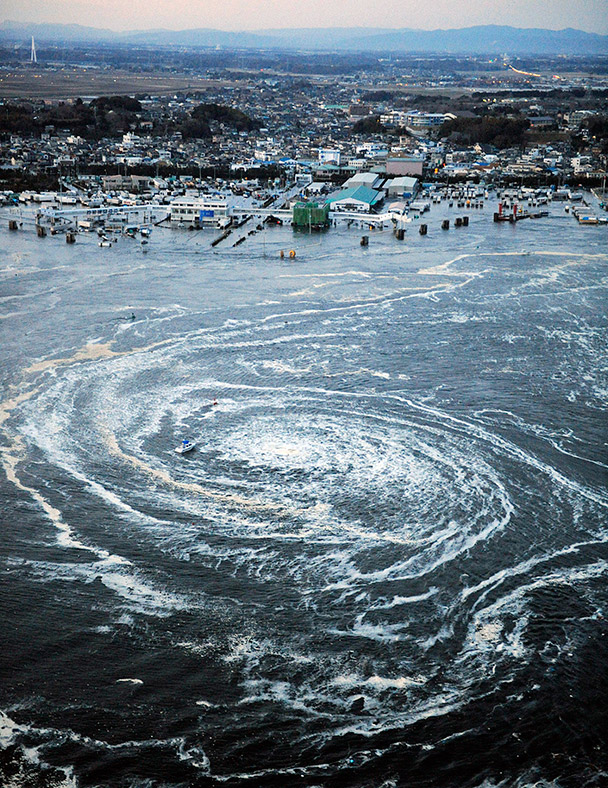
Image source: https://d.ibtimes.co.uk/en/full/1496950/japan-tsunami.jpg?w=400
PTSD is an Anxiety disorder. Its symptoms include anxiety, panic attacks, flashbulb memory of traumatic events, nightmares etc. Symptoms of PTSD are similar to anxiety and depression. In order to treat PTSD, patients may need therapy, whether individually or as part of a support group. If the patient's depression or anxiety is severe enough to impair their daily, occupational and social functioning, then pharmacotherapy via antidepressants may be appropriate. It is important to start psychological counseling as soon as possible. Patients may need to see licensed psychotherapists once to three times a week.
Cognitive-behavior therapy (CBT) and EMDR (Eye Movement desensitization and reprocessing) are known to be effective for treating PTSD. Perhaps, exposure therapy may be helpful to alleviate their symptoms after a therapist and a client establish a therapeutic relationship.
Experienced counselors and therapists can also help traumatized children, seniors and adults with basic counseling and psychotherapy skills. Many therapists and counselors are helping children, adults and seniors in Tohoku now. Supportive therapy may be as important as specialized treatment to the survivors.
In addition, attending a support groups run by a qualified psychotherapist/counselor specializing in PTSD and group psychotherapy can be beneficial to them. Group therapy can involve families or individuals. A group comprised of people who have experienced the same trauma can better understand and empathize with the feelings and experiences of survivors. Group therapy is uniquely positioned to allow patients to share their feelings with others and to provide everyone in the group with support in healing and recovery.
Many people in Japan are still unfamiliar with psychotherapy. Alternative treatments such as shiatsu, yoga, meditation, acupuncture, nutrition, guided imagery, and massage therapy may be more accessible to them.
To ease anxiety and PTSD symptoms, I would advise them to practice deep-breathing exercises, visualizing a relaxing scene, or repeat calming word or phrasing to yourself, listening to music, and writing in a journal.
For details, you may check out the book The Relaxation & Stress Reduction Workbook by Dr.Davis, Eshelman, and Dr. McKay.